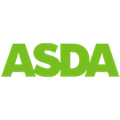Secured vs. Unsecured Loans
Considering taking out a loan? Before you apply, it’s important to understand the difference between secured and unsecured loans.
Find out which loans you could be eligible for with our partner ClearScore and their trusted panel of lenders. Just like Asda Money, ClearScore is a credit broker, not a lender.
If you take out a product through ClearScore, Asda Money will receive a commission payment from ClearScore. The amount charged will be in connection with the specific product selected and so different amounts of commission are received. For more information please see our FAQs.
When you check your eligibility below you will be transferred to our partner ClearScore.
At Asda Money, you can compare loans from our partner ClearScore and their trusted panel of lenders.

Why choose Asda Personal Loans?
-
![Asda logo]()
The Asda advantage
Known for putting value for money at the centre of everything we do
-
![Clipboard icon]()
One simple form…
Receive quotes from a trusted panel of lenders without harming your credit score
-
![Diamond Icon]()
Asda service, Asda value, expert providers
Loan options that work around you
Unsecured loans explained
Unsecured loans are a type of personal loan. With an unsecured loan, you borrow a fixed amount of money from a lender, with a specific time to repay it agreed at the start. You also agree to an interest rate, which affects how much your monthly repayments will be and how much you’ll pay back in total. You can typically borrow between £1,000 and £25,000 with an unsecured loan.
If you have a good credit score and a history of responsible borrowing, you should be approved for an unsecured loan. Most importantly, you don’t need to put up an asset as security for an unsecured loan.
Pros and cons of an unsecured loan
Pros
- Access to money: Once the lender approves your application, you will likely get the money within a few days.
- Flexible repayments: You may be able to choose different options around the length of your loan, with terms often ranging from one to seven years. Remember, the longer the term, the more you’ll pay in interest.
- Boost your credit score: Making your repayments in full and on time every month can help boost your credit score.
- No collateral needed: An unsecured personal loan means you won’t lose your home if you miss your payments. However, defaulting on payments will affect your credit score.
Cons
- Higher interest rates: Typically, unsecured loans have higher interest rates than secured loans as they represent more of a risk to the lender.
- Reliance on credit score: If you have a poor credit history, fewer lenders may consider you for an unsecured loan. It may also be more difficult to secure a low interest rate.
Secured loans explained
Secured loans are also known as homeowner loans, as the debt is secured against an asset you own, like your home. If you offer your home as collateral and then miss payments, your home could be repossessed by the lender.
Secured loans are typically for sums over £15,000 and repaid over longer periods of five to 25 years. The amount you can borrow, and the available interest rate will depend on your credit history, assets and personal circumstances. If you have a poor credit score, you may be offered a lower interest rate with a secured loan compared to an unsecured loan. This is because the lender may be more willing to take on the risk of lending to you if it is secured against your asset.

Types of secured loans
There are several types of secured loans, including:
- Homeowner loans: A loan from your current mortgage lender against your home, often used for home improvements.
- First mortgage: A loan from a mortgage lender to buy your home.
- Second mortgage: A loan from a different mortgage lender, this uses the equity you have available in your home once you have removed the equity used by your existing mortgage provider.
- Second mortgages are often used for home improvements or debt consolidation.
Pros and cons of secured loans
Pros
- Access to money: You may be able to borrow more money through a secured loan than you would with an unsecured loan.
- Application: It may be easier to get a secured loan if you have a poor credit score or are self-employed.
- Availability: Some people take out secured loans because they need a larger sum of money and they cannot re-mortgage within an initial fixed mortgage period and would have to pay a penalty for changing this.
Cons
- Secured against an asset: As the loan is secured against your home or another asset, you may be at risk of losing this asset if you don’t keep up with your repayments.
- Longer terms: As secured loans often have longer payment terms; you’ll pay more in interest over the longer term.
- Variable interest rates: The interest rates of unsecured loans are often fixed, but secured loans sometimes have variable interest rates. This means your monthly payments may increase in the future.
What’s the difference between secured and unsecured loans?
The biggest difference between secured and unsecured loans is the security required for the loan. With unsecured loans, you don’t need to be a homeowner to apply or to put down an asset as a guarantee on the loan.
You can generally borrow more and sometimes get a lower interest rate with a secured loan, as you’re putting down additional security for the lender which means they are willing to take on more risk. If you get into difficulty with your loan and can’t pay it back, the lender can seize your asset to cover its losses. This isn’t the case with unsecured loans.
If you’re considering applying for a secured loan vs. an unsecured loan, consider your personal circumstances, your assets and your options should you get into financial difficulties in the future.
Alternatives to getting a loan
A loan isn’t the only option you have available.
Borrowing from family and friends: You may be able to borrow from family or friends, depending on the relationship you have with them. There’s no need for credit checks and they may not charge you interest. If you decide to borrow from family or friends, consider drawing up a loan agreement to make sure everyone is on the same page from the start. You should also consider how borrowing and lending may impact your ongoing relationship.
Credit card: If you need to make a one-off payment for something, a credit card may be a better option than a longer-term loan. Taking out a credit card and making monthly payments on time is also a good way to boost your credit score.
Save up: It may take a while, but saving money every month rather than paying off a loan means you won’t go into debt.
How Asda Money can help?

Our partner ClearScore, work with a carefully selected panel of trusted UK lenders, who can help you find the right unsecured loan at the right rate for your needs. A personal loan can help you fund a new car or home improvements, or even your wedding.
You can typically borrow from £1,000 up to £25,000. All it takes is one eligibility check, and then you can compare loan offers from across their selected lender panel to find the one that’s right for you and your circumstances. Need more information to better understand your finances and the borrowing options available to you? Discover Financial Support at Asda Money.
Top Personal Loans FAQs:
- Why choose a Personal Loan?
-
Asda have partnered with ClearScore, who are a leading credit broker. This means customers can get access to a carefully selected lender panel who provide personal loans.
- How does it work?
-
With one simple check, you can search ClearScore's panel of selected lenders to see what loan options you have. Once you’ve been approved you will receive your funds, which in some instances could be on the same day.
- How much can I borrow?
- Will applying affect my credit rating?
-
No. One of the best things about working with our partner ClearScore, is you get access to their panel of trusted lenders with no hard credit footprint left on your credit file. When you apply, a soft search is completed which doesn’t harm your credit score.
However, if you do proceed with an offer from your search with them, the lender will complete a hard search. This will show on your credit file.
- What credit score do I need for a bank loan?
-
Strictly speaking, there is no minimum credit score for you to be approved for a personal loan. If you have a strong credit score, more lenders may be willing to lend to you with better interest rates on offer. If you have a lower credit score and have had problems borrowing in the past, you may find a smaller pool of lenders are willing to lend to you. You may even have to look for a specialist lender that offers loans for bad credit.
- Can I get a loan with a CCJ?
-
If you have a county court judgement (CCJ) against your name, you may struggle to get a personal loan with mainstream lenders. However, you may find specialist lenders that are willing to lend to you.
- Can I borrow money with bad credit?
-
If you have bad credit or have had money problems in the past, you may find that some lenders aren’t willing to lend to you. Those that are may only do so with higher interest rates. It’s worth looking at specialist lenders for bad credit loans. Or you can work on your credit score to improve it before applying for a loan.
- Why won’t my bank give me a personal loan?
-
Lenders look at a variety of factors when deciding on whether or not to offer you a loan. They each have their own criteria which will take in your credit score, job, monthly income and more. If you have been rejected by a lender, you can always ask them why and hope they will give you some insight into their lending criteria. They may direct you to one of the main three credit bureaus to find out more information
- Can I borrow money with a poor credit score?
-
If you have a poor credit score or have had money problems in the past, you may find that some lenders aren’t willing to lend to you. Those that are may only do so with higher interest rates. It’s worth looking at specialist lenders for bad credit loans. Or you can work on your credit score to improve it before applying for a loan.
- How to get the lowest rate for a personal loan?
-
The interest rates offered by lenders depend on a range of factors including how much you’re borrowing and the length of the loan. They will also look at your credit score. To help get a lower rate, you can look to improve your credit score by signing up to the electoral register, closing old accounts, checking for any errors on your report, and paying all your bills on time. You may also consider increasing the length of the loan or borrowing less.
- Can I take out a loan if I already have one?
-
Yes, you can. When you apply for a new personal loan, lenders will look at your existing borrowing to see if you can afford the second loan. Many people choose to take out a new loan to consolidate existing borrowing – whether loans or credit cards – into one loan with a single monthly repayment.
- If I already have bad credit, what could this mean for my application?
-
When you apply for a personal loan with a lender, this will show up on your credit file. Your credit score may take a very small hit in the short term once you take the loan out. But if you pay your monthly payments on time and in full, this can have a positive impact on your credit score.
About our trusted provider, ClearScore
We’ve partnered with ClearScore to provide our customers the very best loan options from a panel of handpicked trusted lenders. Asda is in partnership with ClearScore. Both Asda Money and ClearScore are credit brokers, not lenders.
Following one simple eligibility check, your loan options with be displayed. It’s also a safe way to view your options without negatively affecting your credit rating.

Other Links
Asda Money is a trading name of Asda Financial Services Ltd who are an introducer Appointed Representative of “ClearScore” is a trading name of ClearScore Everywhere Limited (formerly known as Aro Finance Limited), authorised and regulated by the Financial Conduct Authority. Address: Vox Studios, 1-45 Durham Street, London, UK SE11 5JH. Registered in England & Wales 06297533. VAT Registration Number 257 0001 44. ClearScore acts as a Credit Broker not a Lender. If you take out a product or are introduced to a third-party provider, Asda and ClearScore will receive payment from that provider; the payment received may be a fixed or variable amount dependent on the product and lender, but it will not impact the amount you pay back. Applicants must be aged 18 or over and a UK resident. For full terms and conditions please visit Asda.com/loans


